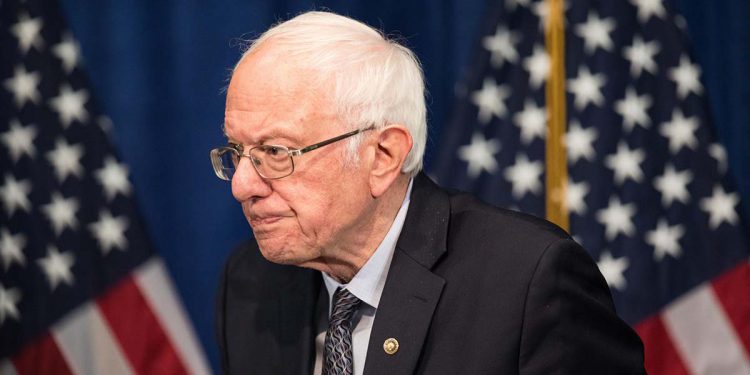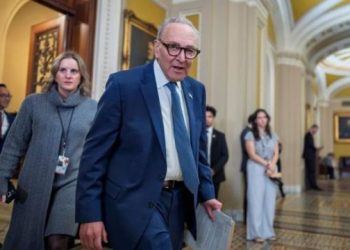Sen. Bernie Sanders (I-Vt.) announced plans to introduce legislation that would cap credit card interest rates at 10%, aligning with a proposal President-elect Donald Trump made during his campaign.
“During the recent campaign Donald Trump proposed a 10% cap on credit card interest rates. Great idea. Let’s see if he supports the legislation that I will introduce to do just that,” Sanders wrote on X (formerly Twitter).
While campaigning in New York prior to defeating Vice President Kamala Harris in the presidential election, Trump pledged his support for a temporary 10% cap on credit card interest rates.
“We’re going to cap it at around 10%. We can’t let them make 25 and 30%,” Trump said at the time, framing the proposal as a way to help Americans “catch up” financially.
Rising Credit Card Debt
Americans held $1.17 trillion in credit card debt during the third quarter of 2024, according to MarketWatch. Data from LendingTree indicated that the average credit card interest rate in December 2024 was 24.43%.
When asked whether Trump still plans to implement the cap after announcing it in September, Karoline Leavitt, a spokesperson for his transition team, told Fox News Digital: “The American people re-elected President Trump by a resounding margin giving him a mandate to implement the promises he made on the campaign trail. He will deliver.”
Sanders’ office did not clarify whether his proposed cap would also be temporary, as Trump suggested, when asked for comment.
Republican Concerns
Republicans, who generally oppose policies perceived as detrimental to businesses, may resist the proposed legislation. Incoming Senate Banking Committee Chairman Tim Scott (R-S.C.), a close Trump ally, was a vocal critic of efforts by the Biden administration to regulate the credit card industry, including measures to crack down on late fees.
Scott argued that such policies could “decrease the availability of credit card products for those who need it most, raise rates for many borrowers who carry a balance but pay on time, and increase the likelihood of late payments across the board.”
Scott’s office declined to comment on a potential 10% interest rate cap.
As Sanders moves forward with his proposed legislation, the debate over balancing consumer protection and business interests is likely to intensify.
 Telegram is where we really talk. Don't miss out!
Telegram is where we really talk. Don't miss out!







